在边缘部署节点
k3s
专门被设计在物联网和边缘计算等资源受限环境中运行
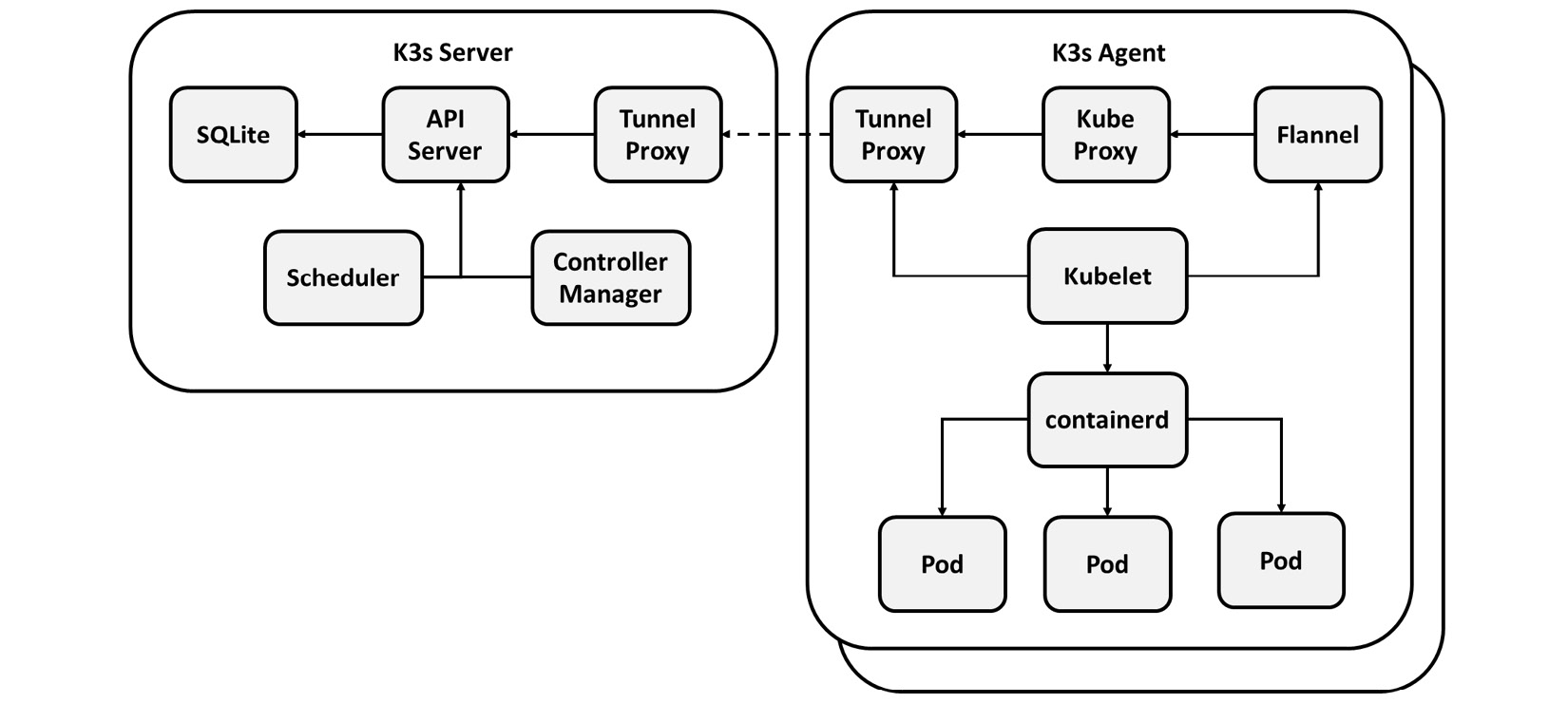
二者的比较
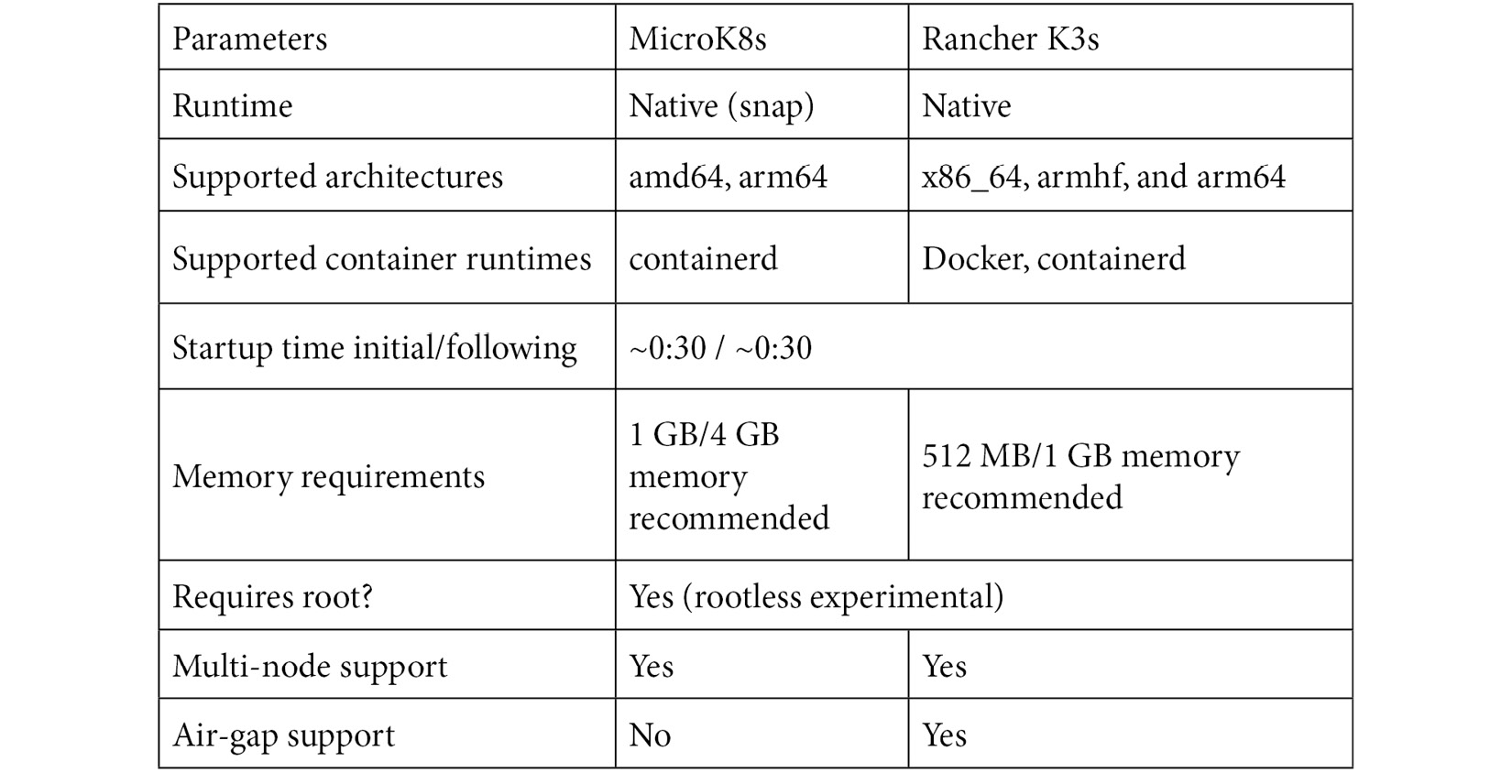
Air-gap 一种网络安全措施
Kubeedge
将原生容器化应用编排和设备管理扩展到边缘主机。
KubeEdge 由两部分组成:云和边缘。
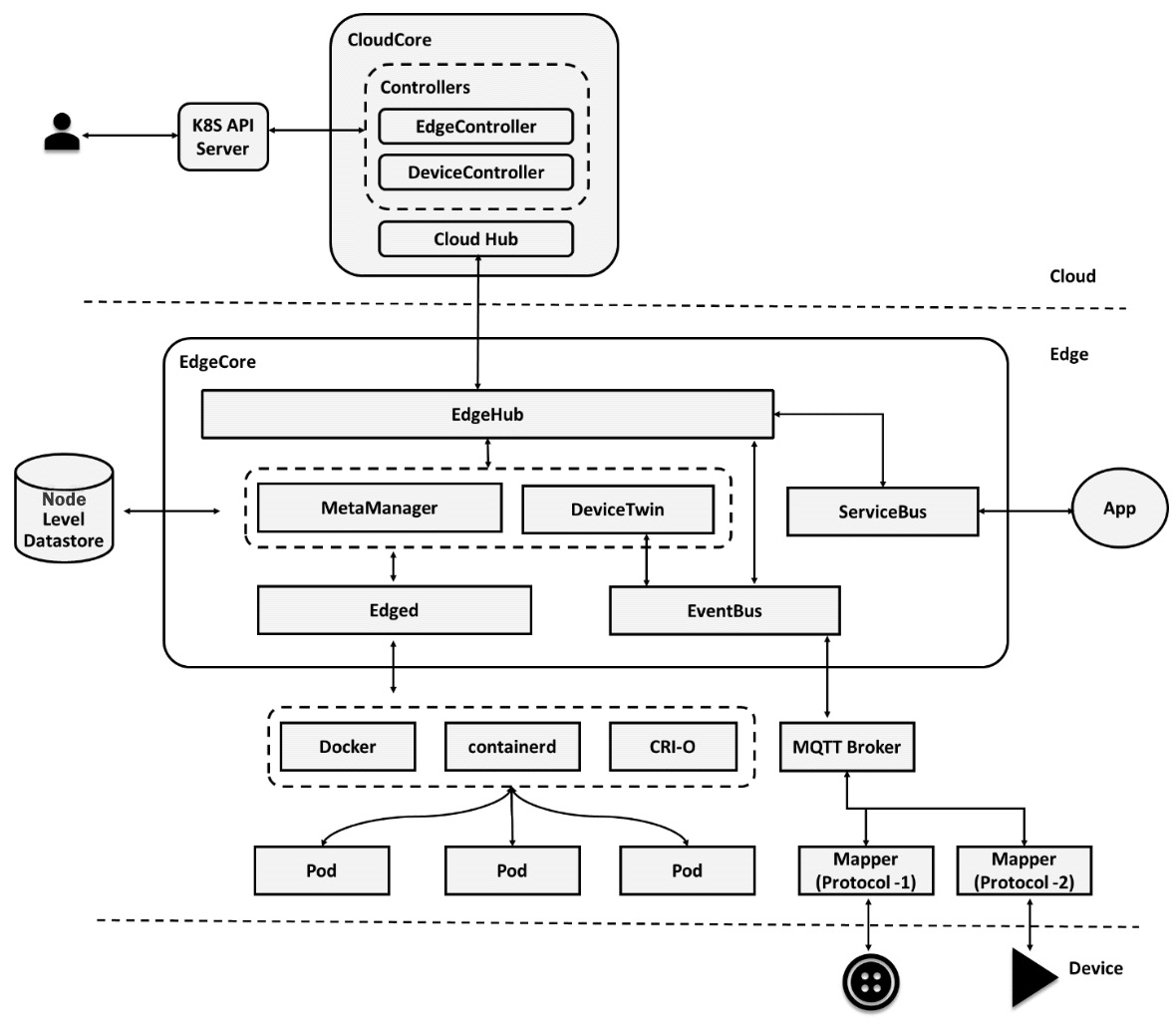
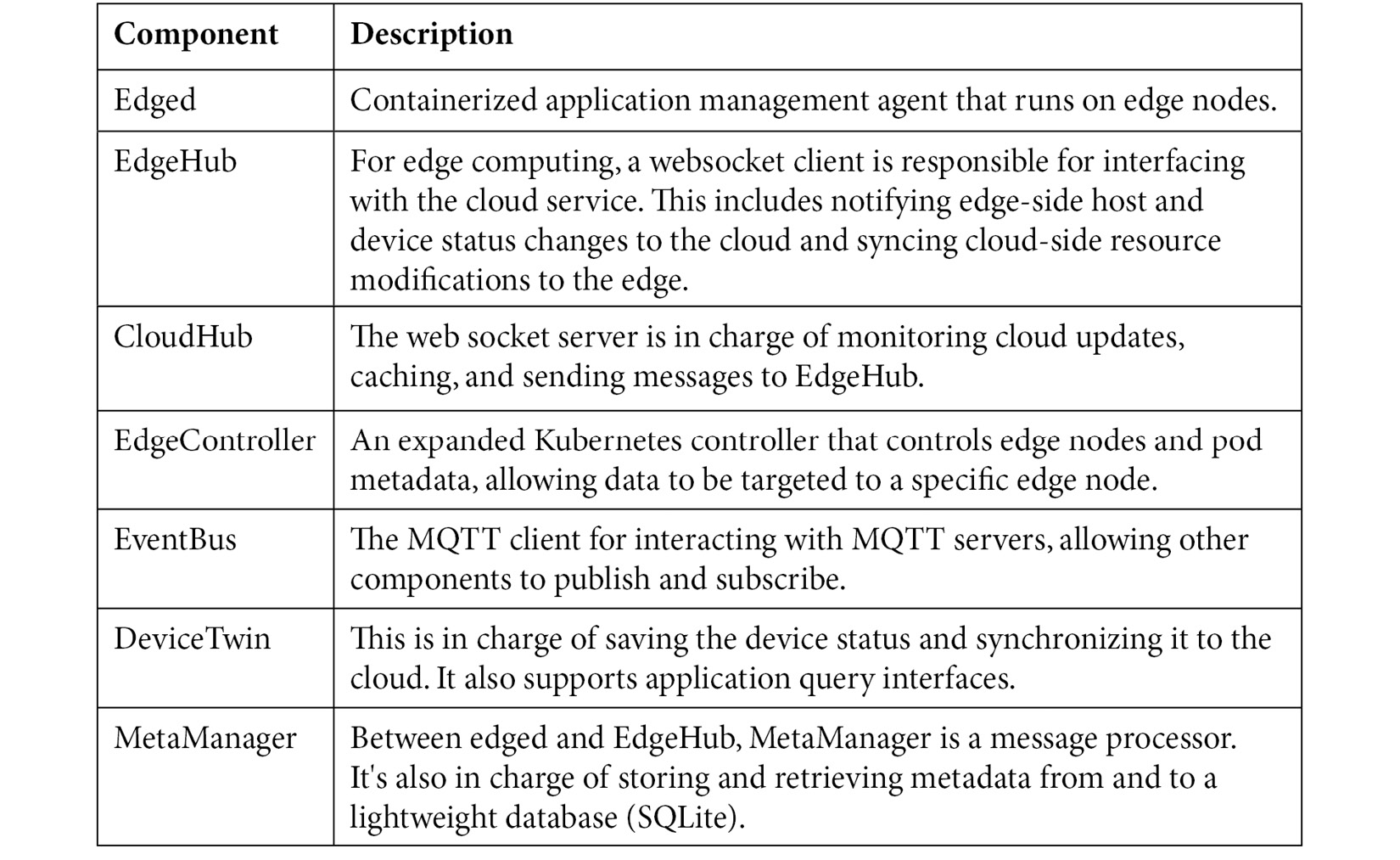
Kubeedge的主要功能:
- Users can orchestrate apps, manage devices, and monitor app and device status on edge nodes using KubeEdge, just like they can with a regular Kubernetes cluster in the cloud.
- Bidirectional communication, able to talk to edge nodes located in private subnets. Supports both metadata and data.
- Even when the edge is disconnected from the cloud, it can operate autonomously. Metadata is persistent per node; thus, no list-watching is required during node recovery. This allows you to get ready faster.
- At the edge, resource use is optimized. The memory footprint has been reduced to around 70 MB.
- For IoT and the Industrial IoT, connectivity between applications and devices is simplified.
- Native support for x86, ARMv7, and ARMv8 architectures.
- Support for running third-party plugins and apps that rely on Kubernetes APIs on edge nodes with an autonomous Kube-API endpoint at the edge.
在边缘部署虚拟节点
在这种方法中,虚拟节点代理驻留在云中,但节点和Pods的抽象部署在边缘。承载容器的边缘节点通过虚拟节点代理进行命令控制。
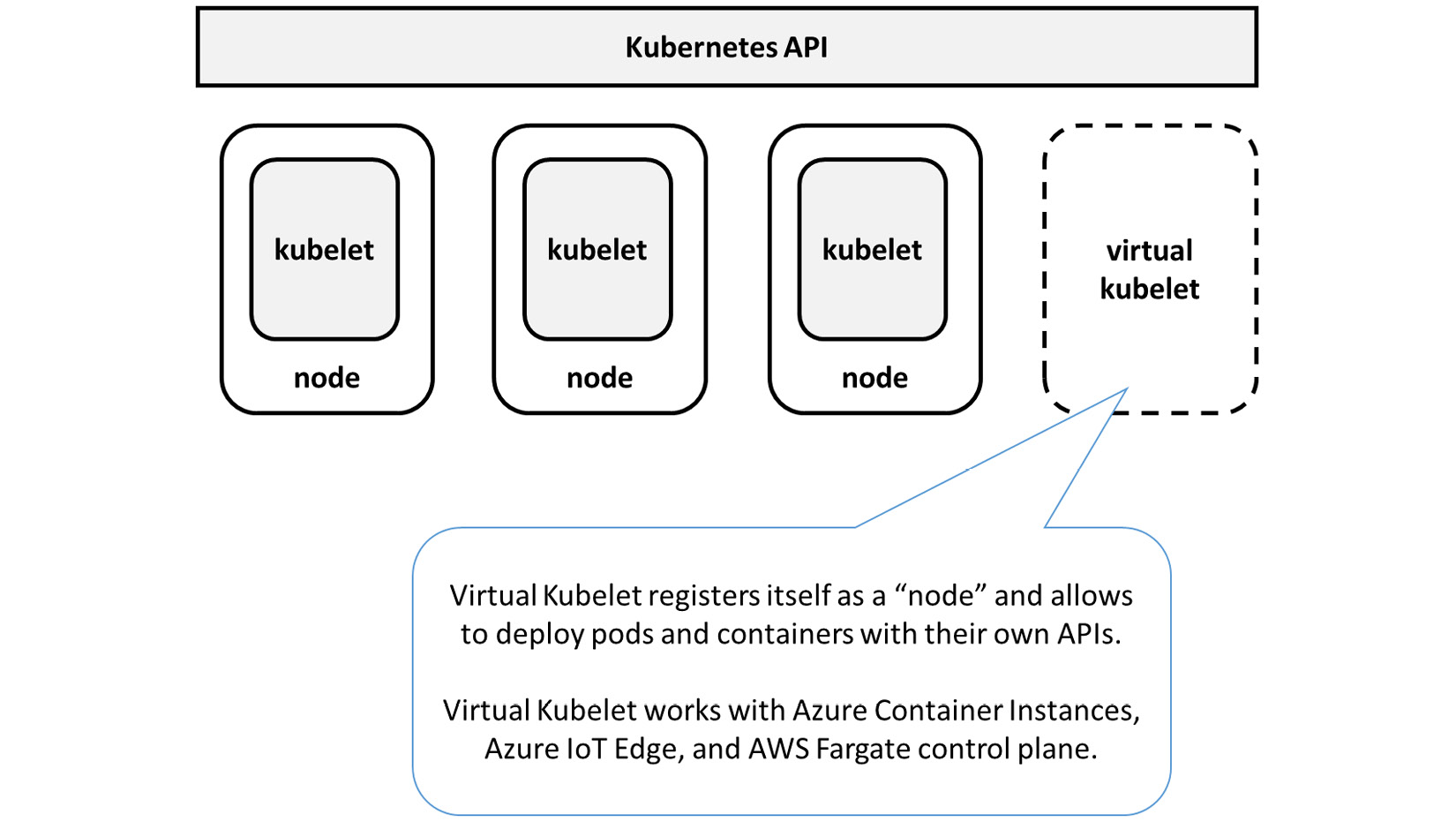
在边缘部署k8s设备
The Kubernetes device plugin framework is used to expose leaf devices as resources in a Kubernetes cluster in this approach.
k8s设备接口将叶设备暴露在k8s资源中。
叶设备:多种传感器、控制器、MCU等
Example:
Microsoft Akri
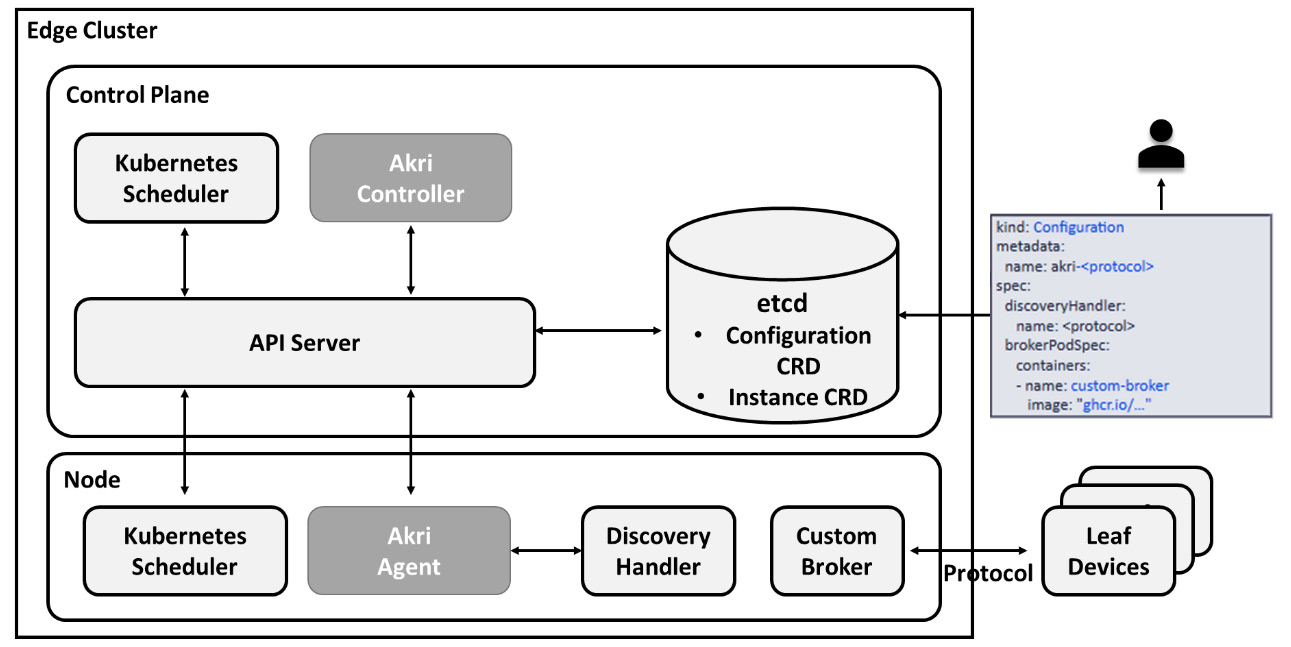
etcd存储键值对,即一些crd设备 Custom Resource Define

